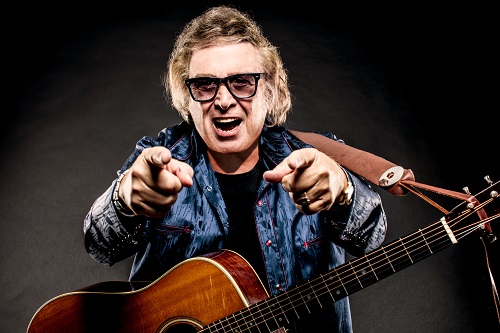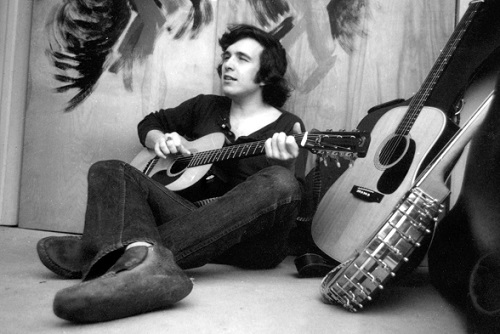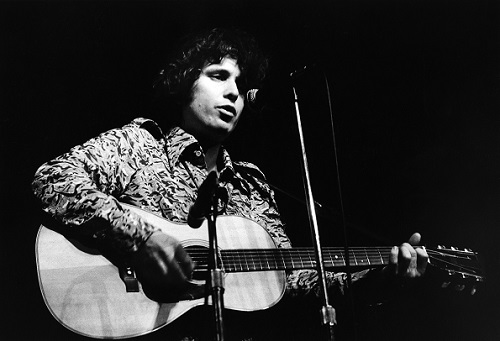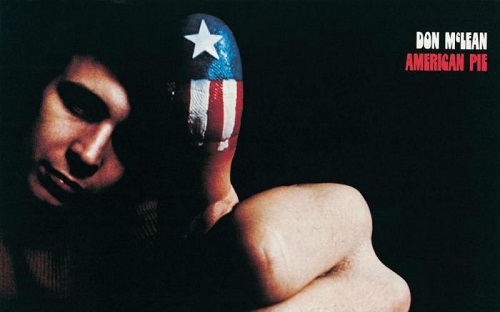By Charlie Steffens
Don McLean’s American Pie, the established singer-songwriter’s most celebrated and commercially successful album, celebrates its 50th anniversary in 2021. Vintage Rock interviewed McLean, who revealed some of the back story behind the record that became part of the 70s music zeitgeist.
Having reached number one within two weeks of its release in October 1971, the album certified gold within six months. The chart-busting single, “American Pie”, clocked in at eight minutes and twenty seven seconds, which was exceedingly long for radio in those days. According to McLean, the record company had initially chopped “American Pie” down to a “radio-friendly” two and a half minutes, and the shortened-single quickly rose to number one.
As expected, this success had a positive effect on sales of the album, and people wanted to hear the full-length album version of the song rather than the abridged radio cut. As McLean recalls, “Listeners called in to radio stations and said, ‘Hey, that’s not the song, this is the song, we want to hear it.’ So they played the album cut on Top 40 radio, and that’s how the eight minutes, twenty seven seconds got to be number one.”
This was remarkable for the time, considering there was no internet, social media, hashtags, or online petitions to drive the message home to the radio programmers. It was the commitment of people who cared enough to take the time to make their voices heard about this unique record, the one that everyone was talking about.
Mc Lean adds, laughing: “And then — whenever you played it — you had to play side one and side two. And whenever it got played on the air, I got paid twice from BMI. It was two hits at once. So it’s always been a bonanza.”
Although most people are familiar with the single, McLean believes the album in its entirety is where the real gold is. “That’s why I say the album is the real experience of American Pie. If you really like what I do and you want to get into it, you’ve got to start at the beginning and listen to the whole record. That will give you an environment that you get into. I couldn’t figure out whether to end the album with ‘American Pie’ or start it. But the way albums are, you got to put your best foot forward right out of the box. Because people put the needle on, if they don’t like what they hear, they take it off…so…’American Pie’ went on first.”
“American Pie” (the single) went to Number One in America and stayed there for four weeks. In the decades since, the lyrics have been endlessly dissected and discussed, and covers performed by such disparate artists as the Jonas Brothers and Madonna. The Recording Industry Association of America (RIAA) listed “American Pie” as number five on their listing of the most important songs of the 20th century.

This is the way most people know Mc Lean; what many don’t know is his breadth as a songwriter and guitarist, as well as singer. Prior to his debut 1970 album Tapestry, McLean had learned much from his mentor and fellow New York native folk singer and activist Pete Seeger. In 1969 he accompanied Seeger on the environmentally-focused Clearwater boat trip up the Hudson River, an effort to raise awareness of pollution in the river. At this time the emerging musician had been writing material for Tapestry, of which the title track would become an inspiration for the formation of Greenpeace.
McLean says that the most fun he had in his creative life was between 1960 and 1970. “That was my favorite time of my creative life because doors were opening and I was finding out things about myself I had never dreamed.”
He insists it all changed after he released Tapestry and the obligations that come with commercial success began. Suddenly the pressure was on to make the second album: “I was thinking constantly and rather frantically about ideas for this album that I had to make — the second one after Tapestry. It was coming slow. It was hard thinking of decent ideas. I didn’t want to put out some piece of junk that was no good. And so my bar had been set high with that album. There were a lot of good songs on there that I worked on for a long, long time. So here I am starting right from scratch with nothing and I’ve got to start figuring some stuff out. I was having fun, though, doing it.”
“American Pie” became a success in 1972, then, seemingly working in reverse, a track on Tapestry became one of McLean’s most recorded songs. “And I Love You So” was performed and recorded by a host of famous artists, including Perry Como, Elvis Presley, Johnny Mathis, Englebert Humperdinck, Bobby Vinton, Helen Reddy, and Olivia Newton-John.
McLean’s expansive poetry, put to music, produced more hits within that one to two-year period, still recognized today. The wistful “Vincent,” a tribute to Vincent Van Gogh, is another of McLean’s acclaimed songs.
“I’m so happy I got in the music business when the music business was still the music business like it used to be. The chart was wide open. You didn’t have a Gospel chart or a Rock chart or a Country chart. It was all pop music. You could find anything there. Sinatra would be on there. The Everlys would be on there. Whatever. Dylan would be on there. It was all on one big chart.”
A 1971 Don McLean appearance at the Troubadour in Los Angeles would influence singer/songwriter Lori Lieberman to write “Killing Me Softly With His Song” during McLean’s performance of “Empty Chairs,” and according to Lieberman, writing the rudimentary song lyrics on a cocktail napkin.
Roberta Flack would record Lieberman’s tribute to Mc Lean in 1973, subsequently winning Grammies for Best Record of the Year and Best Female Pop Vocal Performance.
Fortune and fame were realized, yet McLean prefers to remain low key.

“Well, I certainly didn’t think I was worthy of any of this,” he reflects. “So I was very I felt very unworthy of all the attention. I was happy with the money, that was fine with me. But the attention, I thought was misplaced. It was the way I was brought up. My mother and father were very humble people. So they really didn’t like attention. They didn’t want their names in the paper. They didn’t want to be paid attention to. They were very low-key people, conservative people.
“You start out as a young person and nobody cares about you. I did not want to be recognized. I dress like you wouldn’t even know me. And when I’m really hot and I have been a few times in the last 50 years, it doesn’t matter how I dress. They find me and they recognize me. After the appearance with Garth Brooks in Central Park (1997), I couldn’t walk down the street in New York. I don’t like that. I don’t like it at all.”
Never in his career has McLean been a pushover to authorities and big names in the record industry. He has been his own decision-maker and owns all of his publishing. “It’s really just you and what you want to accomplish. And if you’re lucky enough to get going and become successful, then a lot of other people have ideas about what you ought to do and what you ought to accomplish. They can get into your life and I was always very good at fighting that. So that’s where I got my reputation as being difficult. I didn’t really care whether an agent or a manager or a producer, or somebody wanted me to do something. I did what I wanted to do. It’s very difficult to be in show business at all. But to be in it for fifty years, that takes some doing.”
What does McLean think of all of this attention “American Pie” has received? “I never had a hit before in my life, so I wouldn’t even know what that was all about. But even if (I had a previous) hit, it would not have been what ‘American Pie’ was, which was this phenomenon from the minute it came out. It was always causing trouble. I only care about the people that appreciate what I’ve done. That’s who I’m writing for. I’m not writing for everybody. There are people who hate ‘American Pie.’ They hate me, you know? And I don’t care. I think we’d make a lot of money if we had an ‘I Hate American Pie’ button.”
He laughs. ”I think a lot of people would buy it.”





















